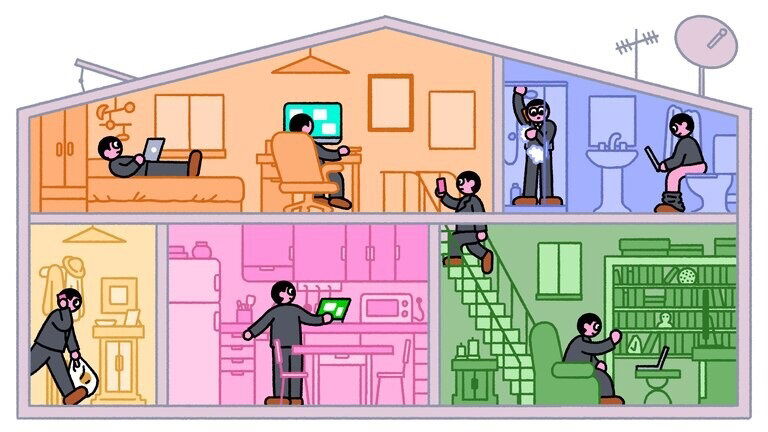Working From Home

With the latest government instructions to work from home, where possible, I thought it was a good time to discuss home work, the main hazards and the employers responsibilities. By law, employers are responsible for the health and safety of all employees, including those working from home. Employers must conduct a risk assessment of their employees’ work activities, including any work from home. If the employer is not able to carry out a full risk assessment due to the coronavirus (COVID-19) pandemic, they should provide their employees with information on working safely at home. This could include asking employees to carry out a self-assessment of their workspace and equipment including a DSE risk assessment, suitable training and support should be provided. Employers should review risk assessments regularly to make sure employees’ working environments at home remain safe and healthy.
An employee’s pay and other terms and conditions of their employment stay the same, apart from having to work from home on a temporary basis. Employees working from home are still covered by the law on working hours. Employers should talk to their employees about who will cover any extra costs employees might have when working from home. Employees should check there are no issues with them working from home, with their home insurer, mortgage provider or landlord. Employers should also make sure their insurance covers employees working from home. When making decisions about working from home, it’s important employers and employees communicate regularly. To discuss, which roles can and cannot be done from home, It’s important for employees to have the right equipment and technology needed to work from home effectively. This can also help avoid extra stress. Things employers, employees should agree on include what's needed to do the job, for example a reliable and secure internet connection or a suitable desk and chair, who will provide or cover the costs of equipment and repairs, technical support for setting up any new equipment or technology, including any training.
Employers should regularly check with employees to assess how technology and equipment is working, and make any improvements. Having a homeworking policy helps everyone to know how people will be set up to work from home, including how the employer will carry out risk assessments, who will provide and pay for equipment, how homeworkers will be managed, how things like expenses, tax and information security are handled, the employer's approach to homeworking in non-emergency situations. If changes are needed to make sure an employee can work at home in a safe and healthy way, employers are responsible for making sure they happen. Employees have a responsibility to take reasonable care of their own health and safety at work. Anyone working from home should keep in regular contact with their manager. They should also tell their manager about any physical or mental health and safety risks, any working arrangements that need to change, for example because of caring responsibilities. It’s important that employees and managers communicate regularly and work together to find suitable solutions.
Caring Responsibilities: Consider and support the individual circumstances and needs of staff who have caring responsibilities while recognising women are more likely to be disproportionately affected by this. Discuss appropriate workload with those with caring responsibilities and ensure they feel supported. Consider making use of additional flexible working options such as reduced or flexible working hours.
Health Issues: While working at home during the coronavirus pandemic, people might be experiencing problems such as stress, anxiety, loneliness or other mental health issues, feeling unhealthy as they’re not able to take their usual exercise, finding it harder to switch off from work, working longer hours, feeling pressure to work while ill, physical pain because they do not have the right working equipment, for example musculoskeletal problems caused by an unsuitable chair and desk at home. Everyone should make sure they look after their mental and physical health, by getting support and doing regular exercise, take regular screen breaks, the rest breaks they’re entitled to, and switch off their work equipment at the end of the working day, manage their work-life balance by having clear start and finish times, know what sick pay and leave they’re entitled to, have the necessary equipment and information to work safely, establish an emergency point of contact. It’s important to remember that everyone’s experience will be different, consider individual circumstances of staff and where appropriate offer additional flexible working options such as reduced hours, compressed hours and flexible start and finish times. Employers and managers should talk together with their employees and follow the law on working hours, encourage sharing of any problems they may have, not make assumptions about what support might or might not be needed, agree on what support may be needed.
Domestic Violence: During the pandemic, there has been an increase in domestic violence and abuse. It has also become more difficult for people to get away from the person abusing them. Employers have a legal duty of care to their employees and should look out for signs of domestic abuse, respond appropriately, support someone who is experiencing domestic abuse, keep a record of incidents at work and when employees report domestic abuse, and any actions taken. Employers should make clear what support is available if an employee is experiencing domestic abuse.

'Contains public sector information published by the government and licensed under the Open Government Licence’


